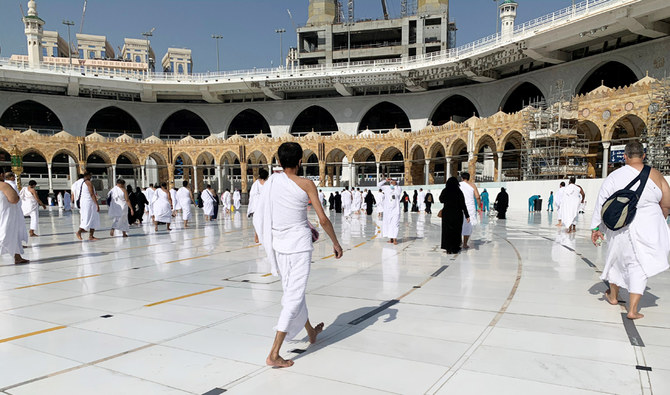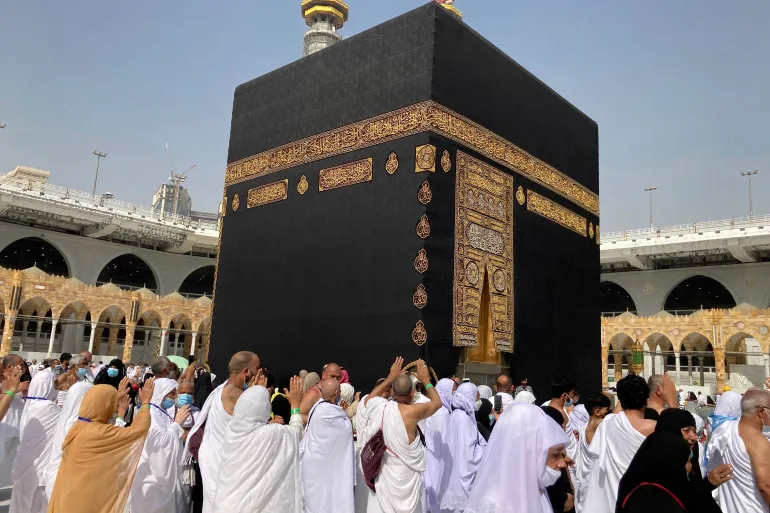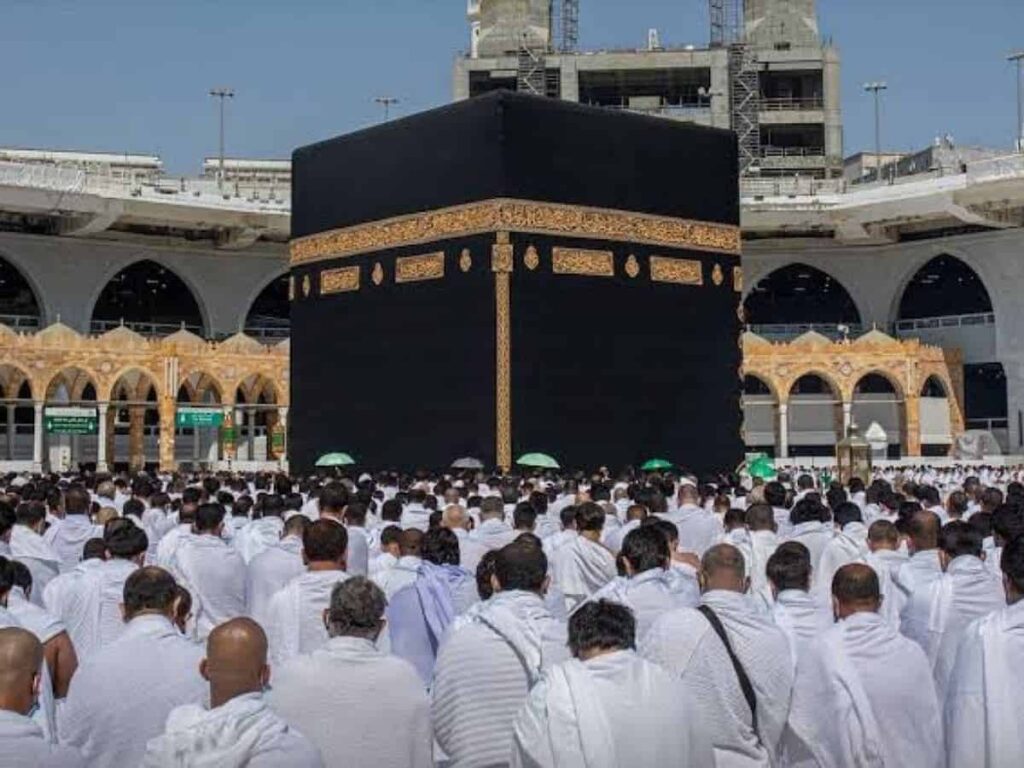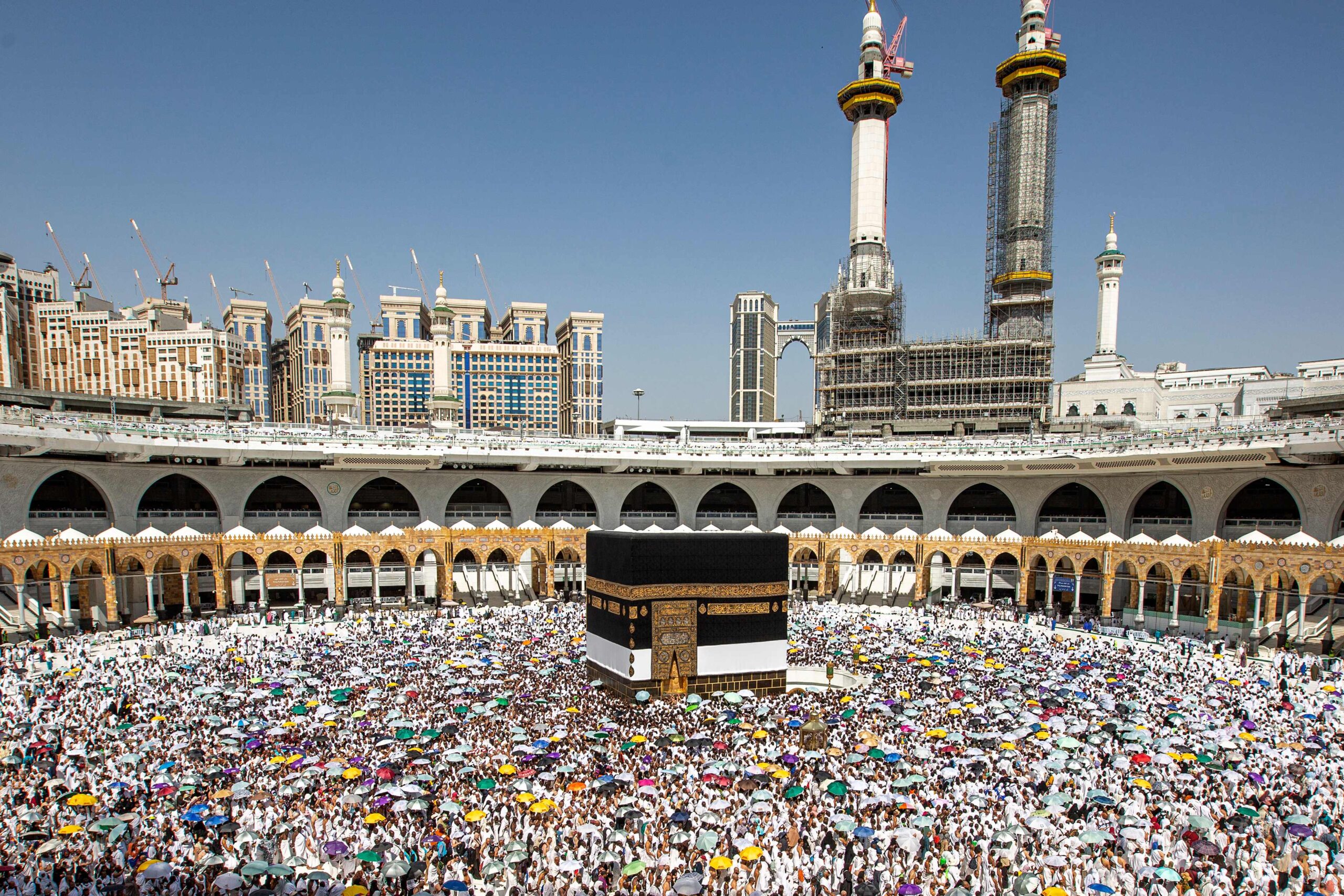
The Hajj pilgrimage is one of the most significant religious journeys for Muslims worldwide. Each year, millions of Muslims from all corners of the globe travel to the holy city of Mecca in Saudi Arabia to fulfill their religious obligation. Beyond its spiritual importance, the Hajj has a substantial economic impact on Saudi Arabia. In this blog, we will explore how the Hajj pilgrimage contributes to the Saudi Arabian economy in simple terms.
Revenue from Pilgrims
The influx of pilgrims during the Hajj season brings significant money into Saudi Arabia, contributing substantially to the nation’s economy. While the spiritual significance of Hajj is paramount, it’s undeniable that the economic aspects of this pilgrimage play a vital role in the country’s fiscal well-being.
Pilgrims arriving in Saudi Arabia for Hajj must navigate various expenses associated with their journey. These costs include but are not limited to:
Accommodations: Pilgrims require a place to stay during their time in Mecca and Medina, the two holy cities of Islam. Accommodation options range from simple lodges to luxurious hotels, catering to a wide spectrum of budgets. The revenue generated from these accommodations is significant, as millions of pilgrims require lodging.

Transportation: Pilgrims need transportation to travel between the holy sites and cities during their pilgrimage. This includes buses, taxis, and other modes of transport. Saudi Arabia’s infrastructure and transportation networks are further developed to accommodate the needs of the Hajj season.
Food and Dining: Saudi Arabia’s restaurants and food vendors experience a substantial increase in business during Hajj. Pilgrims need to eat during their stay, leading to a surge in demand for various cuisines, from traditional Saudi fare to international dishes. This boost in the food industry generates income and employment opportunities.
Administrative Fees: The Saudi government imposes fees for various services, including visas and administrative requirements, such as the Hajj permit. These fees help cover the costs of organizing and managing the pilgrimage, including security, transportation, and other logistical aspects.
Souvenirs and Religious Items: Many pilgrims purchase souvenirs, religious books, and items to commemorate their Hajj experience. Local shops selling such items see increased sales during this time, contributing to the economy.
Donations: A significant aspect of Hajj involves charity and giving to the less fortunate. Pilgrims often contribute to various charitable causes while in Saudi Arabia, and these donations have a positive impact on local and global humanitarian efforts.
The cumulative effect of these expenditures is a substantial boost to Saudi Arabia’s economy. The country’s government, recognizing the importance of Hajj as both a spiritual and economic event, has invested in infrastructure development and services to ensure the comfort and safety of pilgrims.
The revenue generated during Hajj season not only supports the local economy but also contributes to the funding of essential services and development projects in the Kingdom of Saudi Arabia. It helps maintain and improve the facilities and infrastructure required for the annual pilgrimage, ensuring that pilgrims can perform their religious duties in a safe and organized manner.
Moreover, the income generated from Hajj plays a role in diversifying the Saudi economy, reducing its dependence on oil revenues. This economic diversification is part of the Saudi government’s Vision 2030 initiative, aimed at transforming the country into a more modern and economically diversified nation.
Job Opportunities

To support the massive number of pilgrims, Saudi Arabia needs a vast workforce in various sectors, such as hospitality, transportation, and healthcare. Many Saudis find employment during the Hajj season, helping to reduce unemployment rates. This temporary boost in job opportunities benefits the local population and the overall economy.
Investment in Infrastructure
To ensure a smooth and safe Hajj experience, Saudi Arabia continually invests in infrastructure development. This includes expanding and renovating airports, building new roads and bridges, and improving public transportation systems. These investments benefit the pilgrims and contribute to the long-term development of the country’s infrastructure.
Tourism Industry
The Hajj season also stimulates Saudi Arabia’s tourism industry. Apart from the religious significance of Mecca and Medina, many pilgrims and their families explore other parts of the country during their visit! This increases revenue in the tourism sector, encouraging further growth and development in this industry.
Small Businesses
Local businesses, from street vendors to souvenir shops, experience a boost in sales during the Hajj 2024 season. Pilgrims often purchase souvenirs, clothing, and gifts for their loved ones back home. These small businesses rely on the annual pilgrimage to thrive, making the Hajj an essential part of their yearly income.
Government Investment
The Saudi government recognizes the importance of the Hajj and invests significantly in various services and facilities to improve the overall pilgrimage experience for millions of Muslim visitors from around the world. These investments encompass a wide range of areas, including healthcare, security, and the maintenance and expansion of religious sites. These efforts are not only directed at ensuring the safety and comfort of pilgrims but also at enhancing Saudi Arabia’s reputation as a host country for one of the largest annual human gatherings on Earth.
Health Services: The health and well-being of pilgrims are of paramount importance. Saudi Arabia allocates substantial resources to provide healthcare services during the Hajj. This includes the deployment of medical personnel, the establishment of field hospitals, and the provision of essential medical supplies. The Ministry of Health in Saudi Arabia collaborates with various international health organizations to manage health risks effectively.
Security Measures: With millions of pilgrims congregating in a relatively small area, security is a top priority. Saudi authorities employ rigorous security measures to ensure the safety of pilgrims and maintain order during the Hajj. The deployment of security personnel, surveillance systems, and crowd control measures is extensive to prevent any potential incidents.
Maintenance and Expansion of Religious Sites: The two holy cities of Mecca and Medina undergo constant development and expansion to accommodate the growing number of pilgrims. The expansion of the Grand Mosque in Mecca, for example, is one of the most significant ongoing projects. Investments in infrastructure development ensure that pilgrims have access to modern amenities and a comfortable environment during their stay.
Tourism: The Hajj season also boosts tourism in Saudi Arabia. Many pilgrims choose to extend their stay to explore the country’s rich history and culture. Saudi Arabia has been actively promoting tourism, and the influx of Hajj visitors provides an opportunity for them to experience the nation’s diverse landscapes, historical sites, and cultural attractions.
Support for Small Businesses: The pilgrimage season is a bustling time for local businesses. Shops, restaurants, and various service providers experience increased demand during Hajj. This economic boost supports small and medium-sized enterprises and creates job opportunities for the local population.
Government Investments: The Saudi government continually invests in various aspects of the Hajj to ensure its smooth execution. These investments range from transportation infrastructure to communication networks, all of which are critical for managing the massive influx of pilgrims.
The economic impact of Hajj on Saudi Arabia is substantial. The revenue generated from pilgrims, coupled with the broader economic benefits of job creation and business growth, contributes significantly to the country’s fiscal well-being. Moreover, the government’s commitment to investing in services and facilities for the Hajj pilgrimage reflects its dedication to making the experience as spiritually fulfilling and logistically smooth as possible.
In conclusion, the Hajj pilgrimage represents a harmonious convergence of faith and economics in Saudi Arabia. The Saudi government’s commitment to improving services, maintaining safety, and enhancing the infrastructure for the Hajj not only benefits pilgrims but also bolsters the nation’s reputation as a responsible host for this monumental religious event. The economic contributions from the Hajj pilgrimage extend far beyond the spiritual realm, playing a pivotal role in the prosperity and development of Saudi Arabia.





